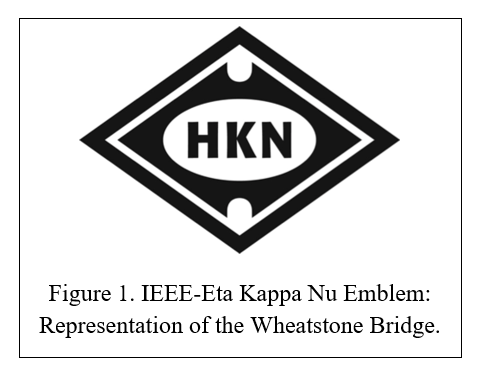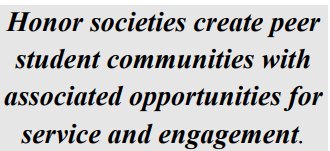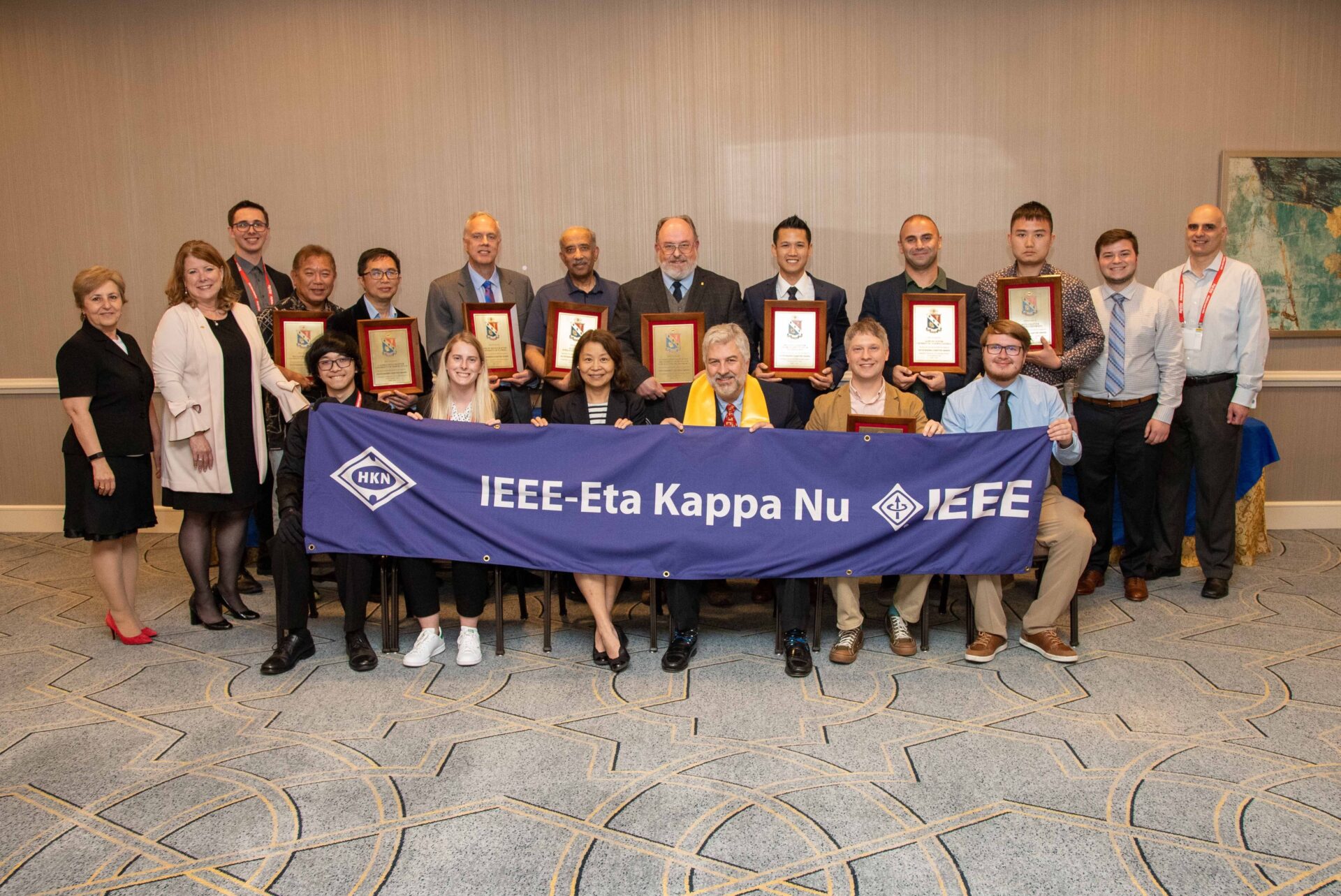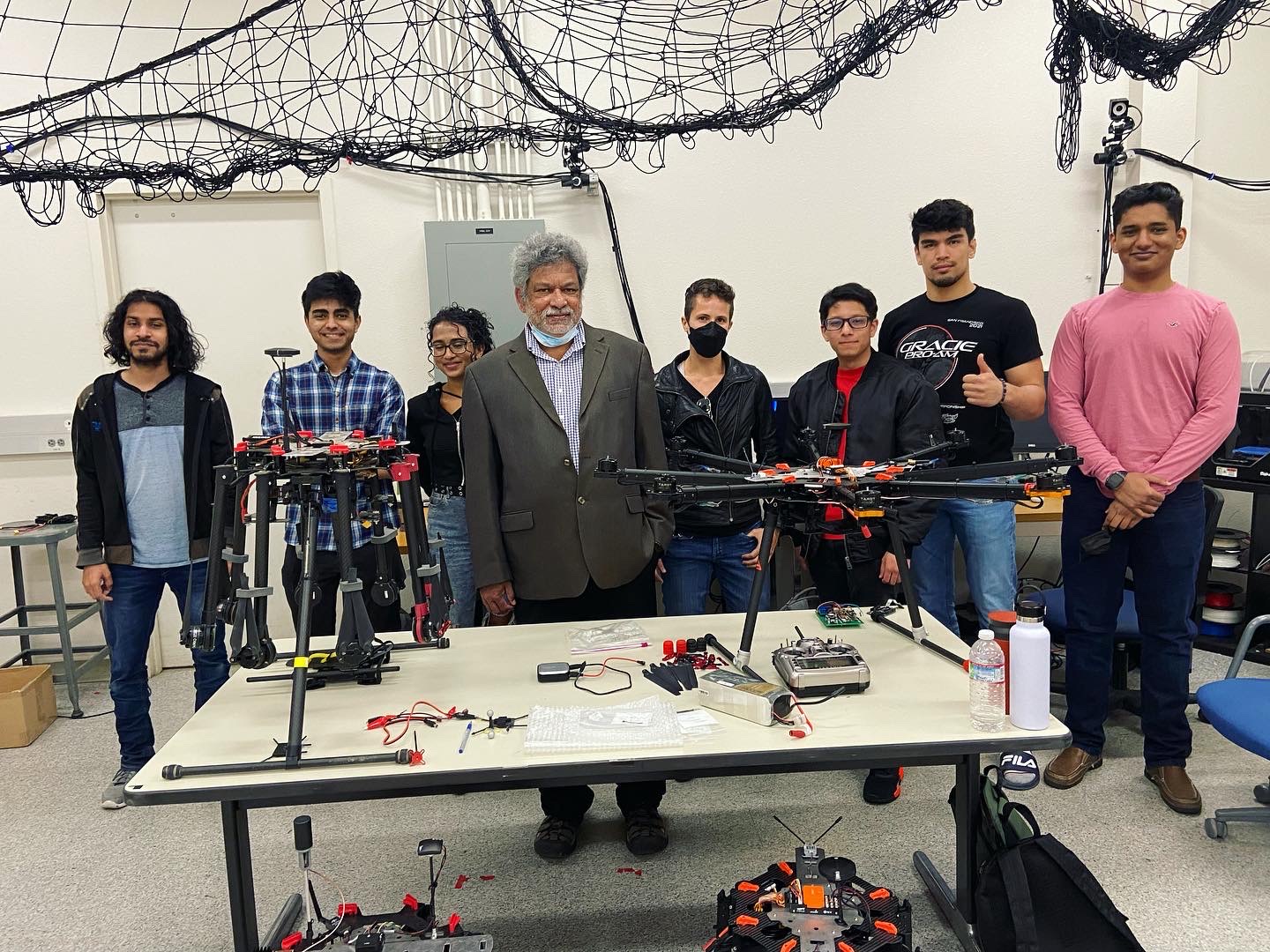Scholastic honor societies are among the student organizations which are commonly available for engineering students. These groups provide recognition for academic excellence, e.g. class rank, often combined with other activity or service requirements. The immediate and long-term benefits of student participation in student organizations are well documented, cf. [1]. In particular, chapters of honor societies create peer student communities with associated opportunities for service and engagement. An honor society can be an effective resource within academic institutions.
For academic programs in electrical engineering, computer engineering, and other IEEE-related disciplines, students have the IEEE-Eta Kappa Nu (HKN) honor society [2]. HKN is a unit within the IEEE professional society. Its chapters have a service-learning orientation which complements the activities of IEEE Student Branches which are typically more technology and industry focused. It satisfies major criteria for a reputable honor society for having on-campus chapters which are formally recognized by the institution, college, or department and have ongoing activities to enhance members’ career development [3]. Similar honor societies exist for other engineering disciplines and Tau Beta Pi is an honor society for all engineering students.
IEEE-HKN Chapter Activities
IEEE-HKN is organized around guiding ideals of scholarship, character, and attitude. Figure 1 shows the Wheatstone bridge emblem. Laboratory use of this instrument requires balancing electrical elements; a membership analogy is made to emphasize the professional importance of balancing the three ideals. The student chapters are affiliated with engineering academic units and conduct activities related to membership, service, and engagement. Membership primarily consists of students who meet scholastic standards (scholarship component) elected by a collegiate chapter although professional members may also be elected based on career accomplishments. Chapters are encouraged to conduct service projects and collaborative engagement activities (character and attitude components). They have demonstrated impact in their communities; HKN chapters reported over 1000,000 hours of service for 2022!
For the host institution, a chapter can provide valuable benefits including [4]
- Promotion of academic excellence;
- Creation of a peer student community;
- Interaction for students with faculty, alumni, and industry;
- Advisory group with student perspective;
- Service support for the whole student body, e.g. tutoring;
- Service outreach to the local community; and
- Access to international IEEE-HKN programs for recognition and career development.
Student members gain leadership, communication, and organizational experience that make them better alumni. Since most of their activities are student led, the faculty time commitment is not great. Alumni may maintain a strong connection to the institution through their HKN affiliation.
Effective HKN Chapters
The active level of an honor society is correlated with the value it provides the host institution. The type and number of activities depend on the local situation and interests. For a HKN chapter to exceed the basic function of recognizing academic excellence with student membership, it needs the attention and support of the institution’s faculty, staff, and administration. An engaged advisor from the faculty and staff serves as a stimulus for activities, as an institutional liaison, and as an organization memory. Multiple advisors are permitted to minimize the advising workload. Other interested faculty can promote honor society membership and activities by posting announcements, attending selected events, and displaying their membership status (or becoming members themselves). Students will tend to value affiliations that the faculty value.
The program administrative head can do much to develop and maintain an HKN chapter’s effectiveness. Activities that are noticed, supported, and encouraged get repeated. Students become invested in the program when they can make contributions to student life and department success. A best practice is public congratulations when activities go well. In addition, support through funding and space allocation can facilitate student-managed efforts for social events, tutoring sessions, maker spaces, etc. A good way to increase the activity level is by invitation. Proactively identify a task that the chapter can accomplish to support the academic operation. Honor students are capable leaders who can make a significant impact. Let them interact with visiting alumni, organize a networking event, host a career panel, conduct peer tutoring for difficult courses, etc.
Summary
IEEE-Eta Kappa Nu chapters can be valuable assets for academic institutions. This honor society operates through its on-campus chapters to promote  excellence with the engineering education and to provide academic recognition and professional development for engineering students. These chapters can create peer communities of the best students within a program and opportunities for networking and service engagement. They can be junior partners in the academic environment making broad contributions to student life and program operation. Modest attention and support by educators can be magnified through student-led and student-managed activity. The leadership, service, and engagement focus of honor society chapters complement the technical focus of student branch activities under the professional umbrella of IEEE. Information on IEEE-HKN can be found at https://hkn.ieee.org [2] and current activities are published in its publication THE BRIDGE magazine [5]. If an institution wants to form a new chapter or wants to reactivate a chapter, IEEE-HKN headquarters can assist [5].
excellence with the engineering education and to provide academic recognition and professional development for engineering students. These chapters can create peer communities of the best students within a program and opportunities for networking and service engagement. They can be junior partners in the academic environment making broad contributions to student life and program operation. Modest attention and support by educators can be magnified through student-led and student-managed activity. The leadership, service, and engagement focus of honor society chapters complement the technical focus of student branch activities under the professional umbrella of IEEE. Information on IEEE-HKN can be found at https://hkn.ieee.org [2] and current activities are published in its publication THE BRIDGE magazine [5]. If an institution wants to form a new chapter or wants to reactivate a chapter, IEEE-HKN headquarters can assist [5].
References
- Stephen A. Durham and Wesley E. Marshall, “Enhancing the Student’s Engineering Experience Through Participation on Student Organizations,” Proceedings of the 2012 ASEE Annual Conference, San Antonio, Texas, 2012. Available: https://peer.asee.org
- IEEE-Eta Kappa Nu (IEEE-HKN), Accessed 2023. Available: https://hkn.ieee.org
- Association of College Honor Societies (ACHS),” Homepage” and ”Judging Credibility”, Accessed 2023. Available: https://www.achshonor.org and https://www.achshonor.org/judging-credibility
- Steve E. Watkins and Nancy M. Ostin, “Best Practices of Honor Societies,” Proceedings of the 2018 ASEE Gulf Southwest Section Conference, Austin, Texas, 2018. Available: https://peer.asee.org
- IEEE-Eta Kappa Nu (IEEE-HKN), “The Bridge Magazine,” “Forming a New Chapter,” and “Reactivating a Chapter,” Accessed 2023. Available https://hkn.ieee.org/news-and-announcements/the-bridge, https://hkn.ieee.org/chapters/forming-a-new-chapter, and https://hkn.ieee.org/chapters/reactivating-a-chapter




